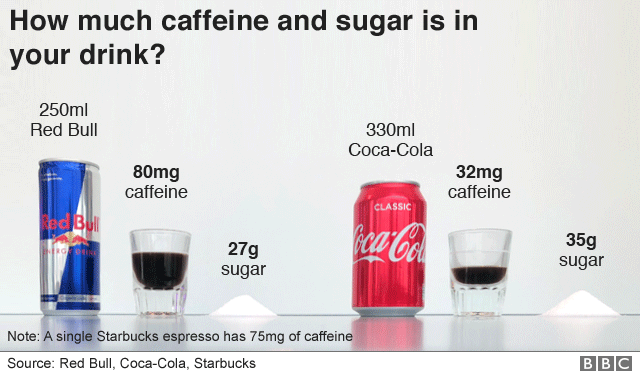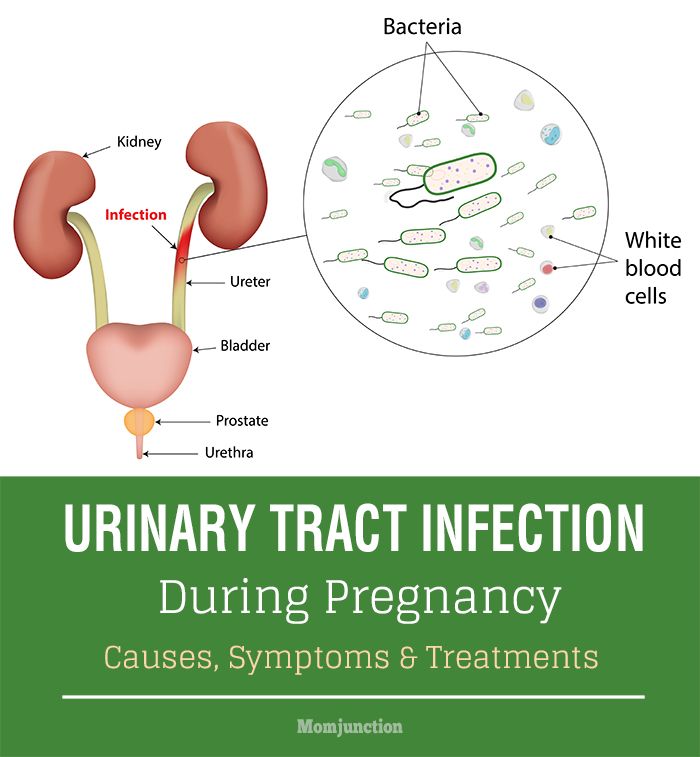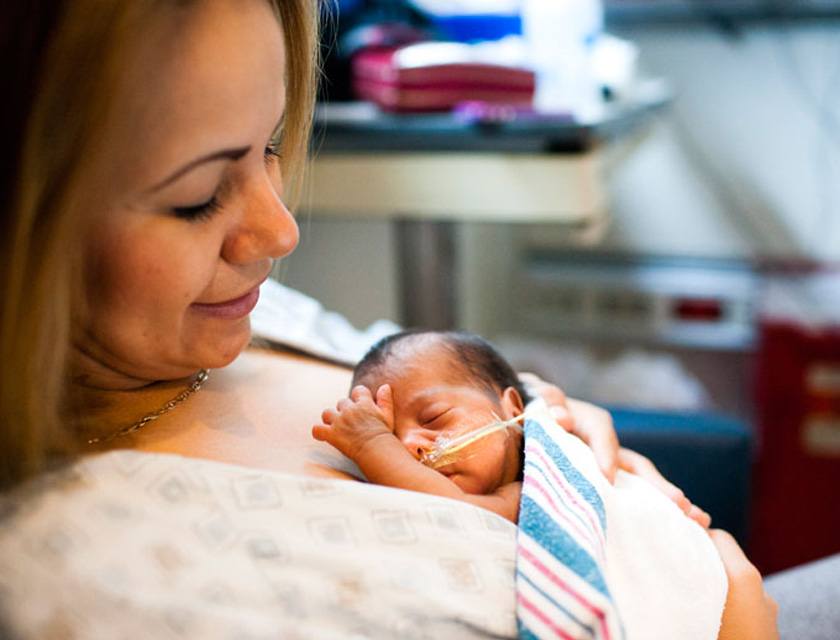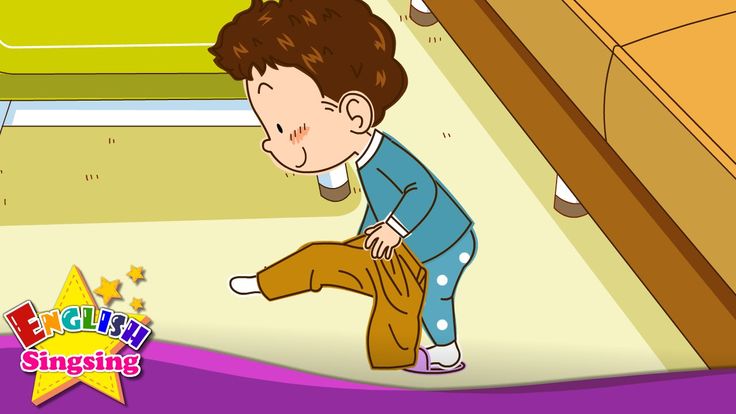Extreme fatigue in third trimester
What to expect from pregnancy fatigue
Pregnancy is all about changes, and some are more dramatic than others. Along with all the physical changes happening to your body, you may also be experiencing symptoms like mood swings, swelling, nausea or morning sickness, to name a few. So, it can be easy to overlook something as straightforward as fatigue.
But as you may be finding out, fatigue can be quite a challenge, too. Below, we cover everything you can expect from this common pregnancy symptom, its causes, and what you can do to manage it.
What does pregnancy fatigue feel like?
Fatigue is totally normal during pregnancy, but people’s experiences with it can vary widely. It may be that you don’t experience much fatigue at all, or it may be that you feel extreme tiredness in early pregnancy that drops off later on. No matter how it affects you, fatigue can generally be characterized by:
- Difficulty getting up in the morning
- Daily tasks becoming harder to complete
- Difficulty focusing
- Constant tiredness throughout the day
- Irritability
- Feeling weak
When does pregnancy fatigue start?
Pregnancy fatigue can start as soon as one week after conception, which means it may be an early sign of pregnancy before a test can tell you for sure. It’s also common to start feeling tired any time during the first 12 weeks.
What causes fatigue during pregnancy?
There are various factors that can cause fatigue, but they differ from trimester to trimester.
First trimester fatigue
The overall cause of fatigue in early pregnancy is simple – your body is preparing for the months ahead. But there are a couple parts of this preparation that can really contribute to feelings of fatigue:
- Hormone changes: There are a lot of hormone changes that happen in early pregnancy. One of them, a big jump in progesterone levels, has been directly linked to fatigue. The emotional ups and downs that come with hormone changes can be tiring, too.
- Metabolic changes: Creation takes energy. And in addition to a fetus, your body is making a placenta and extra blood. All these things create a greater demand for energy and may be partly why you feel the urge to sleep more.
Second trimester fatigue
In the second trimester, people typically find that they have more energy – you may be used to the new hormone levels in your body, and your baby isn’t very big yet. But it’s still possible to feel fatigued in the second trimester, especially if your sleep gets interrupted by pregnancy symptoms like frequent urination and leg cramps.
But it’s still possible to feel fatigued in the second trimester, especially if your sleep gets interrupted by pregnancy symptoms like frequent urination and leg cramps.
Third trimester fatigue
When fatigue happens in the third trimester, it’s generally because the baby’s gotten bigger. Carrying around that extra weight can be tiring on its own, but it also makes other things harder, including sleeping comfortably. Plus, as the baby settles into the pelvis, it puts more pressure on the bladder, so nighttime trips to the bathroom may become even more common. And all of that is in addition to any other pregnancy symptoms you’re experiencing.
Tips for managing pregnancy fatigue
When it comes to managing fatigue, the best thing you can do is take steps to increase your energy levels. This means:
Stay on top of your nutrition
A solid pregnancy diet can be a great way to keep your energy up. In particular, focus on getting enough iron, which supports red blood cell production and prevents any additional tiredness from anemia (a condition which results from not having enough red blood cells to carry the amount of oxygen your body needs).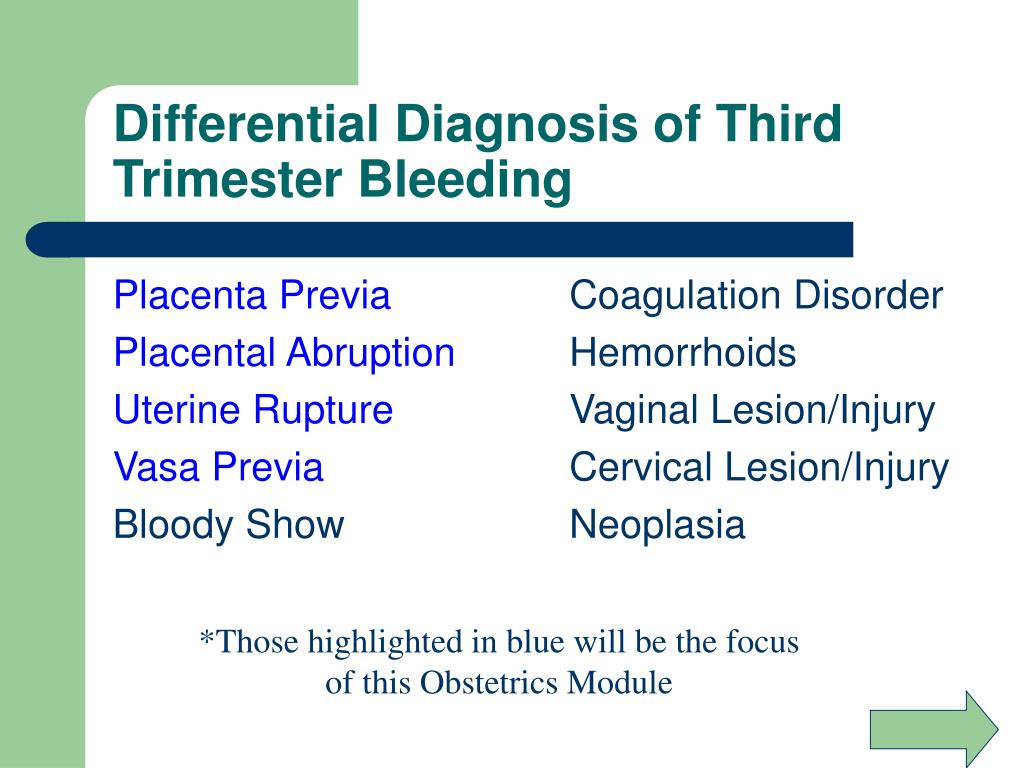 Foods that are high in protein are also good choices, as protein is a longer-lasting source of energy compared to carbohydrates.
Foods that are high in protein are also good choices, as protein is a longer-lasting source of energy compared to carbohydrates.
You may benefit from eating smaller meals throughout the day. This can help keep your blood sugar and energy levels consistent. It’s also important to drink plenty of water, as water helps your body function properly.
Exercise
The American College of Obstetricians and Gynecologists recommends that you get at least 150 minutes of moderate aerobic activity each week while you’re pregnant. That may sound like a lot, but if you break it down into 30 minutes of pregnancy-safe exercises per day, it adds up quickly.
Exercise improves blood circulation, which helps bring oxygen to every part of your body. This can give a boost to overall energy levels. Plus, exercise helps manage other pregnancy symptoms like back pain and constipation.
Rest
Even if you’re doing everything you can to boost your energy levels, you still have to listen to your body. And when your body is fatigued, rest is the answer. Take breaks throughout the day, nap when you need to and sleep as much as possible. It may help to go to bed earlier, and avoiding fluids for a few hours before going to bed can help cut down on bathroom visits at night.
And when your body is fatigued, rest is the answer. Take breaks throughout the day, nap when you need to and sleep as much as possible. It may help to go to bed earlier, and avoiding fluids for a few hours before going to bed can help cut down on bathroom visits at night.
When should I see my doctor or midwife about fatigue during pregnancy?
Fatigue is very common and normal during pregnancy. Still, don’t hesitate to talk to your care provider at any point along your prenatal appointment timeline if you have questions or concerns about your level of tiredness.
But keep in mind, there are times when fatigue may be a symptom of a pregnancy complication like anemia, depression or gestational diabetes. Call your care provider if you experience sudden fatigue, fatigue that completely stops you from doing your daily tasks or if you have fatigue with any of the following:
- Fever
- Pain in the chest, abdomen or head
- Dizziness
- Difficulty breathing
- Swelling in your hands, ankles or feet
- Vision changes
Get the care you need
Whether your pregnancy is making you tired, nauseous or anything else, a prenatal appointment can help.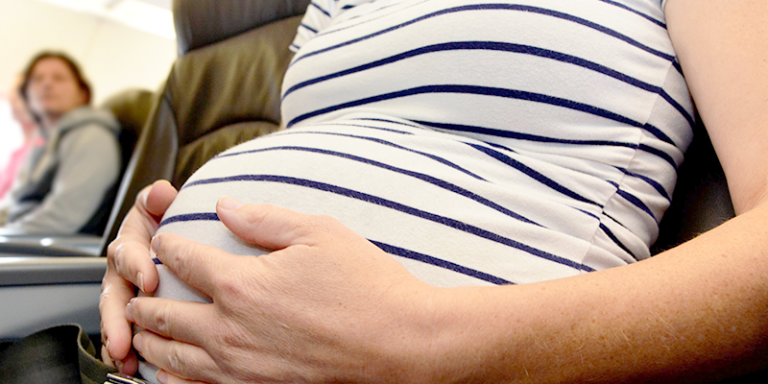 In addition to making sure you and your little one are safe and healthy, your care provider can give you tips and recommendations for every part of your pregnancy.
In addition to making sure you and your little one are safe and healthy, your care provider can give you tips and recommendations for every part of your pregnancy.
Pregnancy: Can Fatigue Be a Sign of a Health Problem?
Are you dragging these days? Does a nap sound fantastic right now?
Life can be exhausting at times, but especially when you’re pregnant. It’s totally normal to have some degree of fatigue right now—you are growing a human inside of you!
“Fatigue may be one of the most common first symptoms of pregnancy a woman experiences,” said Kelley Saunders, MD, an OBGYN at Banner – University Medicine Women’s Institute in Phoenix, AZ. “It is very common and quite significant in the first trimester. For many women, this improves in the second trimester and returns in the late third trimester.”
Although it’s common among pregnant women, you may still wonder why.
Why does pregnancy make you so tired?
The biggest reason: It’s hard work making a baby and it can be taxing to your body. “Your body has to adjust to maintain your health and the health of the baby inside of you,” Dr. Saunders said. “The physiologic changes and increased metabolic demand start in early pregnancy and can continue even after childbirth while breastfeeding.”
“Your body has to adjust to maintain your health and the health of the baby inside of you,” Dr. Saunders said. “The physiologic changes and increased metabolic demand start in early pregnancy and can continue even after childbirth while breastfeeding.”
Beginning somewhere between conception and implantation, pregnancy hormones kick in – affecting your body, mood and sleep. During the first trimester, you may also experience morning sickness, frequent nighttime bathroom breaks and leg cramps, which can leave you feeling pretty tired.
Then starting around your second trimester, you may start to get a little pep in your step. You may start to feel more like yourself again. But don’t be alarmed if you are still pretty exhausted—especially if you have other children to care for. Fatigue is still possible during the second trimester.
In late pregnancy, you’ll most likely begin to feel tired again. At this point, your baby has grown quite a bit and is putting more physical demands on your body. You’re carrying around extra weight and it’s more difficult to get comfortable when you sleep. Add in leg cramps and heartburn, and sleep becomes even more elusive.
You’re carrying around extra weight and it’s more difficult to get comfortable when you sleep. Add in leg cramps and heartburn, and sleep becomes even more elusive.
When is pregnancy exhaustion not normal?
While exhaustion is a common symptom of pregnancy, extreme fatigue is not normal and may be a sign of an underlying health condition. Dr. Saunders said you should see your health care provider if your fatigue is severe and persistent.
“A sudden onset of exhaustion and continual symptoms may be a sign of abnormal fatigue,” she said. “When fatigue is associated with fever, chest pain, difficulty breathing or an inability to perform routine daily activities, you should see your OBGYN for evaluation.”
Some of the potential underlying causes for your fatigue both during and outside of pregnancy may be due to the following:
- Gestational diabetes: Your body may become resistant to insulin during pregnancy, which can cause you to feel very tired. Other symptoms include extreme thirst and frequent urination.

- Anemia: A lack of iron can cause you to have an insufficient number of red blood cells to transport oxygen to your tissues and can cause you to feel tired, lightheaded and weak.
- Infections (viral, bacterial or fungal): Being pregnant can make you more vulnerable to infections, such as urinary tract infections, which can make you fatigued.
- Thyroid problems: Having too much or too little thyroid hormones can cause you fatigue, along with fluctuations in your weight, irritability and depression.
- Prenatal depression: Feeling tired all the time can also be a side effect of depression. Other symptoms may include sadness, feelings of hopelessness and an inability to complete daily tasks or activities.
If you’re in need of a health care provider or have questions or concerns, you can find a Banner Health specialist at bannerhealth.com who can help.
Have a happy, healthy pregnancy
For helpful tips to boost your energy and stay healthy throughout your pregnancy, check out the following posts:
- 5 Tips for a Happy and Healthy Pregnancy
- Pregnant and Hungry? A Guide to Eating Right
- Prenatal Screening Tests to Expect Every Trimester
- Driving While Pregnant: Common Questions Answered
- Is a Headache During Pregnancy Something to Worry About?
Women's Health Pregnancy
Join the Conversation
Fatigue during pregnancy
During pregnancy, a woman gets tired faster than usual, sometimes without even doing anything special.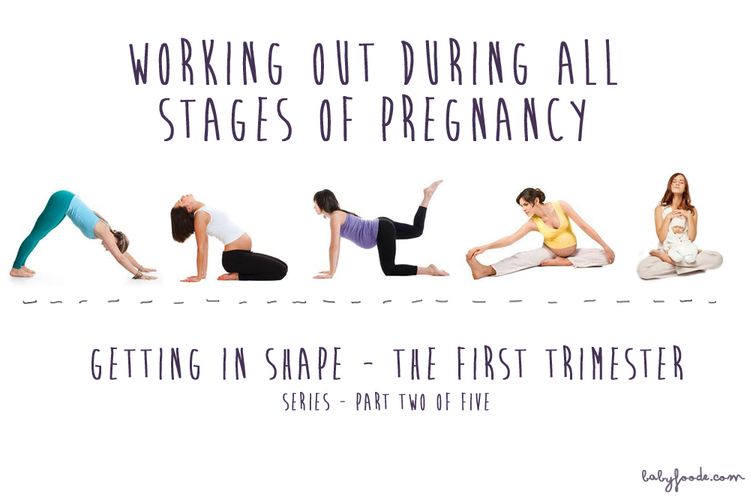 This is normal, because hormonal and psychological changes take place, and the body prepares for childbirth. Such changes can be stressful for a woman, which adds to the feeling of fatigue.
This is normal, because hormonal and psychological changes take place, and the body prepares for childbirth. Such changes can be stressful for a woman, which adds to the feeling of fatigue.
A pregnant woman develops insomnia, heartburn, heaviness in the back, spasms and cramps in the legs, and excessive fatigue may indicate anemia, especially if symptoms such as pale skin, shortness of breath, dizziness and palpitations are present. Iron deficiency in pregnant women occurs very often, as the need for iron increases due to the needs of the baby, and the hemoglobin produced by iron delivers oxygen not only to the tissues of the mother, but also to the child.
1. Proper nutrition
Nutrition of a pregnant woman should be BALANCED. Be sure to have a large amount of vitamins and minerals, especially iron and protein. A large amount of iron is found in the following foods: red meat, seafood, poultry, legumes. When consuming iron-rich foods, try to drink freshly squeezed citrus juices, which will help your body absorb minerals better. Do not forget about special multivitamin complexes for pregnant women.
Do not forget about special multivitamin complexes for pregnant women.
2. Drink more fluids
Lack of fluid in the body leads to rapid fatigue, but do not overdo it in the third trimester, when there is a tendency to edema, especially before bedtime.
3. Exercise
If there are no contraindications and your doctor has no objection, then try to exercise regularly. It will help to relax not only your body, but also charge you with positive. It is not necessary that this be a daily set of exercises, hiking in the fresh air is enough.
4. Help from loved ones
Do not refuse help, the care of your loved ones will be very necessary for you during this period. Not only do not refuse, but also ask for help yourself when you need it.
5. Recreation
Relax more, try to spend a lot of time doing activities that give you pleasure and satisfaction and avoid stressful situations.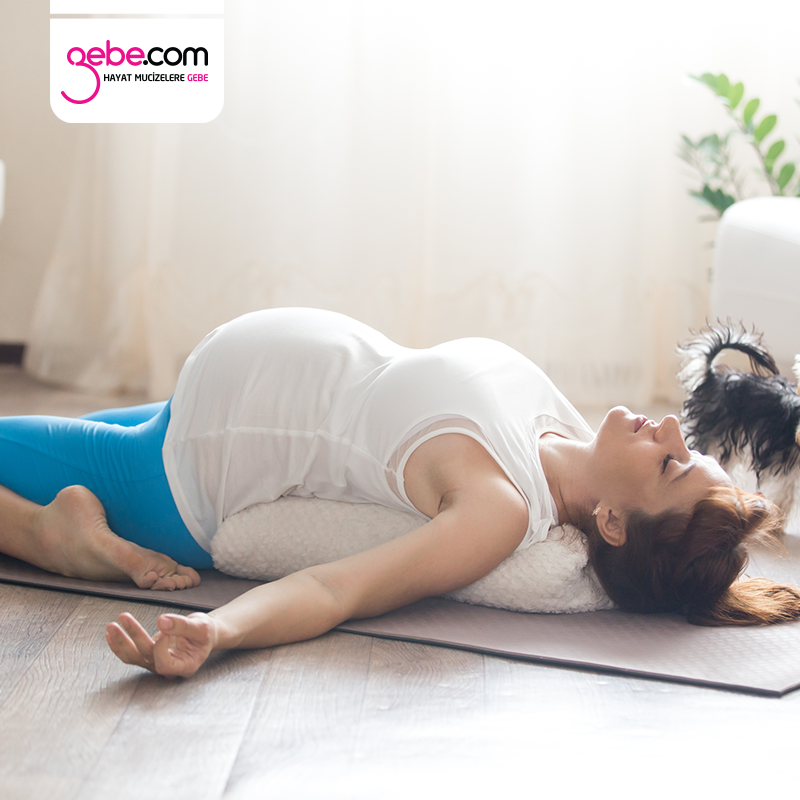 Use special breathing techniques to relax. Rest more time, use every opportunity that falls to lie down to rest. If you are busy with work, be sure to take breaks, restore strength.
Use special breathing techniques to relax. Rest more time, use every opportunity that falls to lie down to rest. If you are busy with work, be sure to take breaks, restore strength.
6. Third trimester
As for the third trimester of pregnancy, here, among other difficulties, there may be HEAVY AND FEELING OF TENSION IN THE lumbar. The baby has already grown up and gained weight, so long walks are becoming harder and harder. In such cases, prenatal bandages can be used to relieve heaviness in the back.
But the SPECIAL BANDAGE may not suit all women. Many cannot choose the right and suitable option for themselves, because it can put pressure and create discomfort. 9 will help you in this situation.0007 sling scarf . You can tie up your stomach with them, and it will not squeeze the child, creating inconvenience, but will provide support for both the tummy and lower back.
Many expectant mothers who have tried SLING AS A BANDAGE noted that it is really more comfortable and pleasant than a special bandage.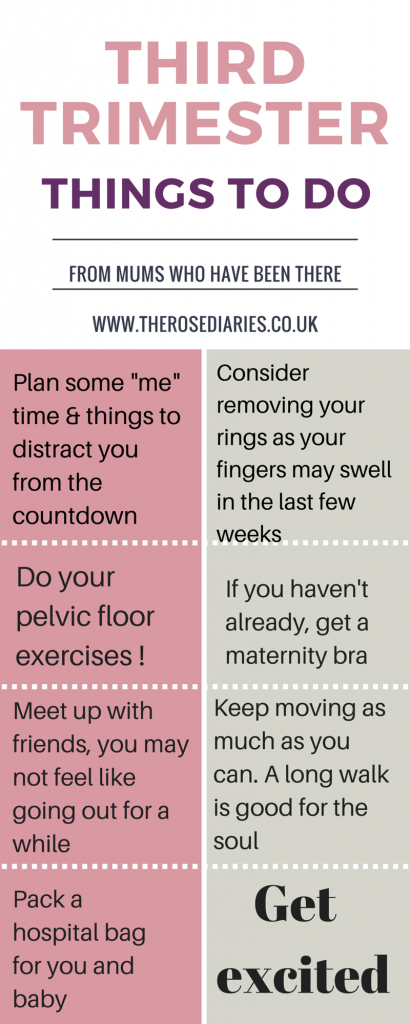 After childbirth, the sling will come in handy not only for carrying the baby, but also for tying up the pelvis and abdomen, which will help the uterus contract faster. Often, the bandage simply tamps down the lowered organs and flattens the stomach, while tying it with a sling will just lift and “put in place” the organs and fix the stomach.
After childbirth, the sling will come in handy not only for carrying the baby, but also for tying up the pelvis and abdomen, which will help the uterus contract faster. Often, the bandage simply tamps down the lowered organs and flattens the stomach, while tying it with a sling will just lift and “put in place” the organs and fix the stomach.
For information: in Mexico, for example, SLING, or rebozo, IS AN ESSENTIAL TOOL FOR MIDWIVES. Rebozo is used there not only for carrying children or as a part of the national costume, but also as an assistant to a pregnant woman. So, for example, in addition to supporting the abdomen and lower back, a midwife can use it to make a special relaxing massage for a woman in labor and even change the position of the child in the womb with special techniques and exercises.
In postpartum practice, rebozo is used as a tool with which a woman returns the energy and body tone spent during childbirth. In this practice, the technique of sequential bandaging of seven zones is used: forehead, shoulders, area under the chest, abdomen, mid-thigh, mid-calf, feet.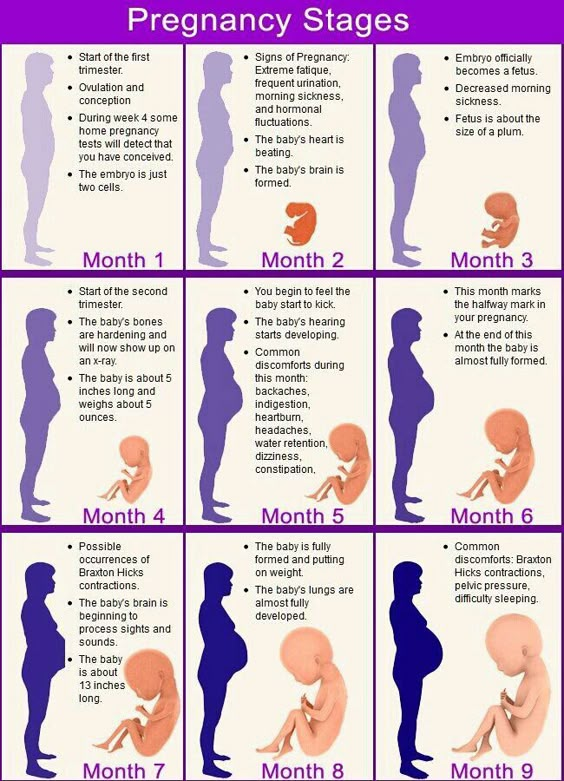
We hope our tips help a little. Happy pregnancy and easy delivery!
description, features, recommendations, contraindications, what you need to know
Pregnancy is a condition that affects the entire female body without any exceptions. Naturally, this not quite usual condition also affects the well-being of the fair sex, who is preparing to experience the joy of motherhood. A growing and actively developing baby “takes out” all the nutrients and vitamins it needs from the mother’s body, so the female body switches to an emergency mode of operation. The consequence of long-term work in such a mode is chronic fatigue, which especially makes itself felt in the later stages.
Contents of the article
The main cause of weakness during pregnancy in the third trimester is progesterone, which accumulates in the female body. The focus of progesterone is that this hormone has a strong influence on the nervous system of the expectant mother, as if preparing her for the birth of the baby.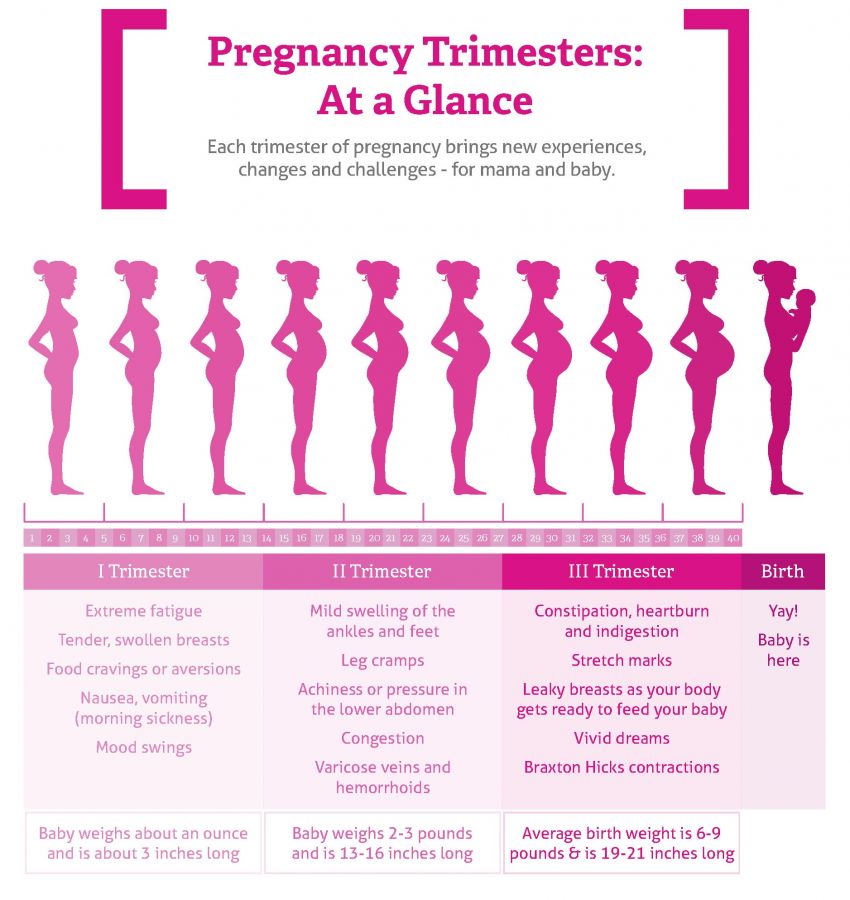 A pregnant woman becomes more passive, peaceful and relaxed, while in ordinary life she can be very emotional in nature.
A pregnant woman becomes more passive, peaceful and relaxed, while in ordinary life she can be very emotional in nature.
Fatigue after eating
The weakness experienced by a woman during pregnancy in the third trimester is absolutely normal, you should not be afraid of it, you should not worry about it. If you have eaten and feel that it is time to lie down - listen to your body and do what it asks of you. Digestion of food requires a large energy expenditure from a pregnant woman, which she cannot give in her interesting position. Therefore, it is worth reducing activity and after the next meal, just lie down.
However, fatigue varies. Sometimes it does not portend trouble and is an absolutely logical companion of the gestation process. In some cases, a weak condition is a sign of health-related disorders. What kind of violations are in question in a particular case, only a medical specialist will help to figure it out. We will list the main causes of painful weakness at the final stage of gestation.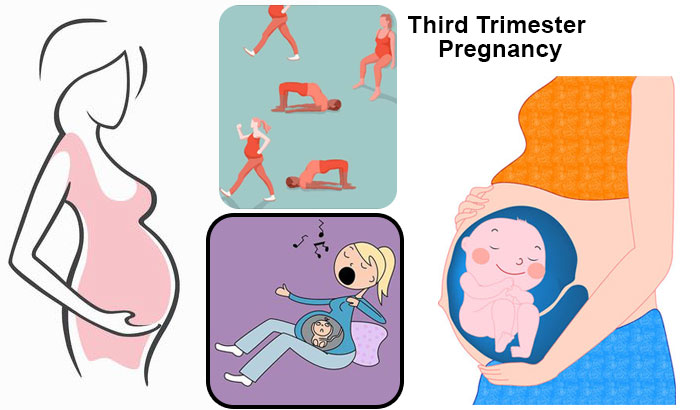
Preeclampsia
Preeclampsia is synonymous with toxicosis. But if toxicosis attacks a pregnant woman in the early stages, then preeclampsia is a late phenomenon and requires, unlike its "brother", mandatory treatment. If weakness in the 3rd trimester of pregnancy is accompanied by vomiting and nausea, swelling and increased pressure, if the urinalysis shows an increased protein content, then this is not just preeclampsia, but preeclampsia - its severe degree.
Hypotension
Sometimes fatigue is accompanied by dizziness. The tandem of these symptoms indicates that the expectant mother suffers from low blood pressure. It is sad to state, but the fact remains: weakness with hypotension is not the worst thing. Due to the reduced pressure, the blood in the vessels begins to circulate more slowly than usual. And this is bad not only for the mother, but also for the fetus: hypotension can lead to hypoxia in the baby. Sometimes, due to a lack of oxygen (and this, in fact, is hypoxia), the fetus dies.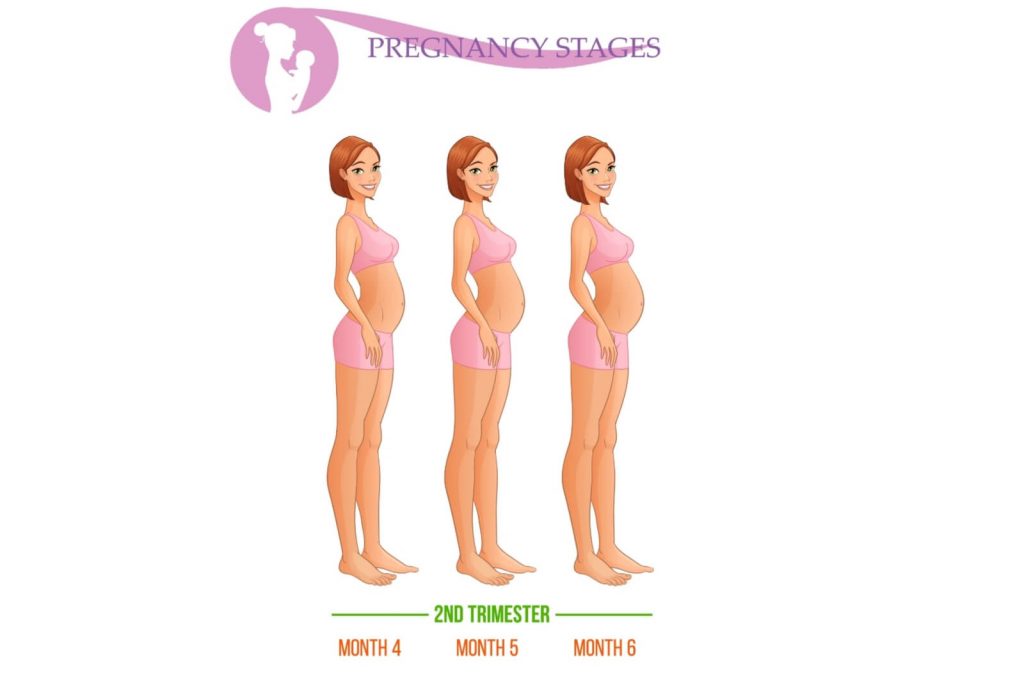 Therefore, if you have such a painful condition, give up your favorite coffee in the morning or a cup of tea, without which it is difficult for you to wake up. It is much wiser to start the day with a glass of fresh juice, which will be useful for both you and the baby.
Therefore, if you have such a painful condition, give up your favorite coffee in the morning or a cup of tea, without which it is difficult for you to wake up. It is much wiser to start the day with a glass of fresh juice, which will be useful for both you and the baby.
Iron deficiency anemia
When there is a catastrophic lack of iron in the mother's body, anemia can develop in a pregnant woman. Severe fatigue during pregnancy in the third trimester may indicate precisely this ailment if the symptom is associated with shortness of breath, hair loss and numbness of the hands. It sounds pretty scary, but iron-deficiency anemia has been on the rise lately. There is nothing catastrophic about this, because the amount of iron in the body can be easily adjusted. Doctors, as a rule, prescribe iron-containing preparations to their patients, simultaneously recommending to lean on beef, buckwheat, legumes, nuts, and other foods that are characterized by a high content of this microelement.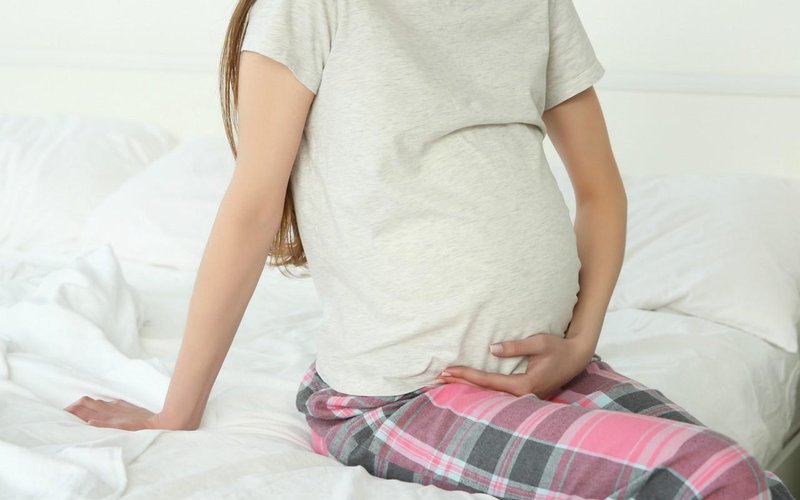
Colds and SARS
Among other things, fatigue during pregnancy in the third trimester is evidence of various colds, from traditional SARS to dangerous influenza. It is not difficult to recognize trouble: fatigue and weakness in the case of colds are associated with chills, aches, coughs and a runny nose. The best treatment for this condition is a lot of warm drinks, cool air in a room with a satisfactory level of humidity, comfortable warm clothes.
Late term weakness management
If you feel like a squeezed lemon, you should reconsider your diet. While feeling weak later on is entirely logical, don't miss out on the opportunity to help yourself. Fresh fruits, high-quality protein and whole grains will be “nutritional” assistants in this matter. Needless to say, you need to rest as much as possible! Even if it doesn't work at all. Biologically active additives like fish oil will affect the stabilization of vitality, and a contrast shower will invigorate even a damp autumn morning.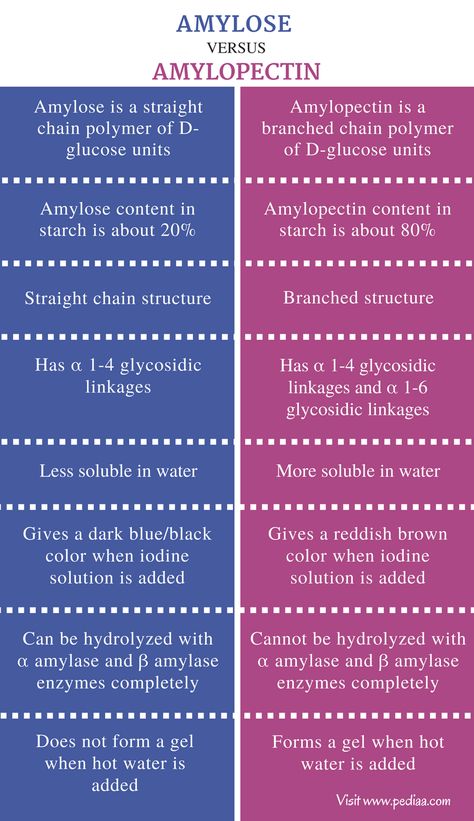
Enroll
Pregnancy management 4 subservices
The service is provided in 75 clinics - price from 22 600 up to 490 000 rub
Make an appointment
Pregnancy management during the first trimester
The service is provided in 60 clinics - price from 2 900 up to 490 000 rub
Make an appointment
Pregnancy management second trimester
The service is provided in 29 clinics - price from 1 820 up to 81 700 rub
Make an appointment
Third trimester pregnancy management
The service is provided in 30 clinics - price from 2 100 up to 56 650 rub
Make an appointment
Management of multiple pregnancy
The service is provided in 50 clinics - price from 40 000 up to 490 000 RUB
Show all
Gynecologist 1176 doctors on the website
Clinic of your Dentist
Register
Implant Expert Dental Clinic
Register
Policlinic.


